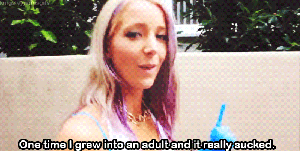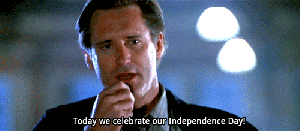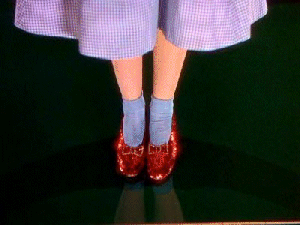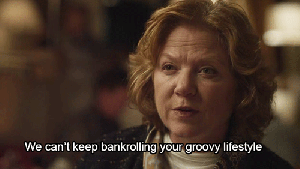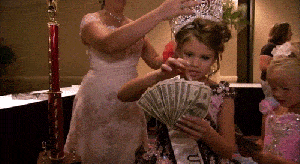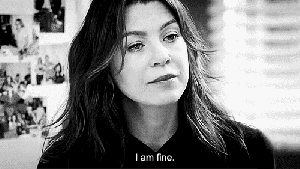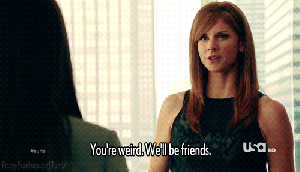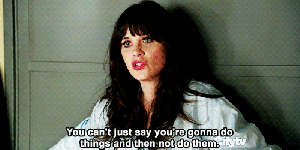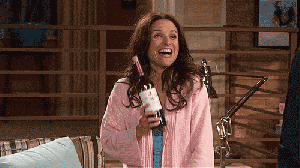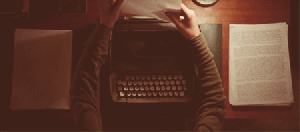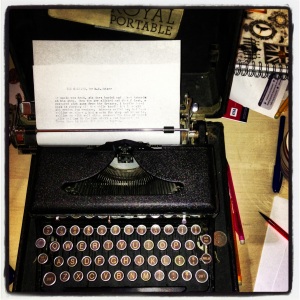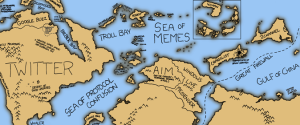In a couple weeks, I won’t be 24 anymore.
I’ll officially be a quarter of a century old. Which is to say, not very old at all. But still a wee bit lot older than I told a barman the other day – he asked for my ID; I was like ‘sheesh I’m eighteen already fool.’ Then corrected myself... ‘I mean, I’m really twenty-twooahuh-four. Twenty-four. ’ And he looked absolutely bewildered. Let’s pretend that’s because he was Australian not because I was talking nonsense.
This past year, I feel like I’ve done an awful lot. I finished my Masters, graduated and left university (finally), interned, moved back south, became employed, started really paying taxes, dated, discovered Crobar, got promoted, dated some more, taken up climbing, taken up boxing, learnt how to make vegan haggis, decided to never date again, lost touch with good friends, reconnected with old friends, made new friends, joined a London music society, and a book group, and a writing group, been lonely, been happy, been excited and mostly just been busier than ever.
And I’m finally in London. London. The city I always knew I needed to live in. The city I love the way a crow loves a murder and a plot loves a twist. The city that I’m sure will churn me up and spit me out like it does most everyone, but where, in the mean time, I’m content to figure myself out.
It’s amazing. It’s scary. And how the hell am I nearly twenty-five?! Anyway, seemed like a good excuse to jot down twenty-four things that I feel I’ve kind of learnt in the last twelve months. Or am learning. Everything these days seems more process than revelation.
At first, it’s all about being independent.
You’re out! You finished. You did the thing! Now there’s a level of independence that didn’t fully exist at university. There you were at least looked over by the system. Now there’s a sense of self-reliance, using your own reason and resources. Sort of. Some of the time. Mostly anyway.
It’s exciting! It’s novel! And still an itsy-bitsy-teeny-tiny bit terrifying in a big way.
YEYYYYY we’re freeeeeeeeeeee. Now we can have adventures! Or not. We have the choice to adventure or not! Also discovering the joys of living in a clean, tidy house with no risk of contracting a disease every time you make food is The Best. There are suddenly really big questions and uncertainties and you think you’re looking for something but most of the time you don’t really know what that something even is.
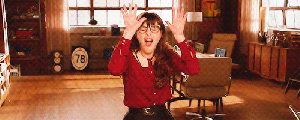
Which is why it’s really great to be in touch with your family.
Sometimes you just want a hug, or a no-nonsense phone call, or someone to give you £10 for taking the train to visit them. Of course not every family is perfect, for some it’s the family you chose not the family you were born into that fits into this role, but having those reliable people who are always there when it matters – they mean the absolute world.
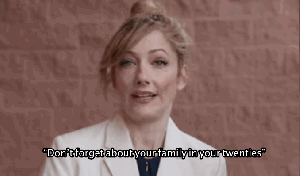

Because finding your feet takes time.
It can feel like you’re youth in desult. Ok that was actually a silly reference to one of my favourite humans and his blog – which is literally about this EXACT feeling. Do you want to be in business? Do you want to be a tattoo artist? Are you even using anything you learnt in your degree? What on earth are we even doing with our lives? Does anything have any meaning? What's the point?! Was there ever a point?!
And not having everything figured out is ok.
Really, it’s totally fine. There’s no magic shuttle to success and even the folk who look like they’re totally sorted, probably don’t feel that way all the time either.
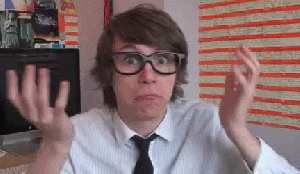

Even when it comes to finances…
Doing things like figuring out your tax code and translating your pay slip might take a moment or two – especially if you’re going from one tax bracket to another. On the other hand, if you’re like me and you’ve moved from the super-cheap and affordable North to London’s cocktail of failed dreams and extortionate prices, sometimes it’s as simple as realising your weekly shop is no longer £15 that makes your head pulse.
And saving money? No one does that anyway (wait really, is anyone doing this?!)
There’s an option to start putting money into a pension at work. You probably have friends that have them. It sounds very sensible. Put £200/month away for the next few years and you’ll be able to go on at least one and a half cruises to the British Virgin Islands in your 60s. But right now, you’d probably rather use that couple hundred quid for a boozy weekend in Bruge or put it towards buying a new coat for winter.
At least money isn’t as hard as dating.
I go on about it (sorry not sorry) but dating gets weird after university. And not only are there the six lads you’d totally find in a Taylor Swift song to consider, there’s also this whole dating like an adult shindig. It feels like part Darwinism, part job interview. Or if you're in a relationship: people start talking marriage and babies. Pressure much?!

But at least it’s good to see the back of the hanging out vs. hooking up conundrum…
There are definitely days where the simplicity of meeting up with someone in the library or lounging around drinking tea whilst whining about your creepy professors, coursework and other students will be thought of with dreamy nostalgia.
 |
Part of that nostalgia will also be for your friends.
You’ll notice that your friendship group will shift. People you used to see everyday are now people you barely speak to. With others, your interests may change and take you down different paths. You might move to different countries and never see them again. Some people are in your life briefly and some people forever, so be prepared for those changes and don’t worry too much about it – it’s not just you.
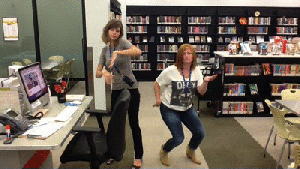

Moving city, whether it’s London or anywhere else, can be lonely.
You may be biggest city in the world or a leafy suburb, fact is sometimes being home alone on a Thursday night feels like the end of the world. That the bars are full and you are the only person left all alone, that no one loves you now and never will, that the diary will never have another plan put in it, that your heydays are over and the world will forever turn without you. The best thing to do in this situation is to call someone else. That way you can feel alone together.
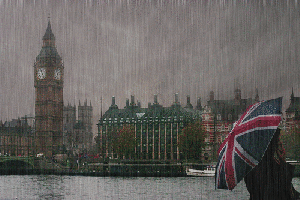

It’s ok to grieve a little.
Things change. You’re turning over a chapter. You’re saying goodbye to parts of your life you never thought you’d lose or leave. So yes, of course it’s ok to go through the many stages of grief. But not too much.
Especially since it’s not like you lose EVERYONE
You might fall out of touch with some people but the friends who go through all this with you, who go through the same or similar experiences, they’re so important. They’re part of the process, weird and wonderful as it may be.
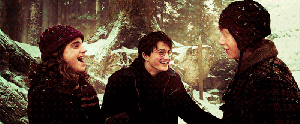
Better yet, not only is making new friends not impossible but you might find yourself reconnecting with old ones.
People will surprise you. Sometimes complete and total strangers will be the ones to stick their neck out for you, or at least be the ones who end up brightening your day. Similarly, you’ll be stunned just how many people you’ve lost touch with would secretly love it if your paths cross again. So if you know one of your old friends from prep school is in the same town or that someone from university is passing through – send them a message, see how they’re doing. You’re finally moving in the same direction again. Plus it’s really fun to play Sherlock with them to find out what happened to everyone else.
Work is still work.
Unless you’re extremely lucky, you’re not in your dream job with the dream salary. You might be en route to that dream job, but you’re probably not famous or CEO of your own independent music label or running an antiquarian bookstore just yet. That’s ok. Work is called work for a reason and whilst there will be bad days where getting up at 6.30am seems too much and people grate on your nerves, there will also be amazing days. And then there’s always the weekends too.
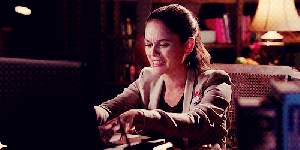
Living for the weekend kinda means you learn to use time wisely.
Buy a diary. Even better: a Filofax. Staying in touch with people means learning to schedule in days when you’re all free. Especially since it’s easier to go to Edinburgh than to figure out the right tubes to Zone 4 half the time.
Although the hangovers genuinely are worse than when you were 20…
The recovery time from drinking, staying up late, or dancing the night away is so much longer. And apparently it only increases with age. Same kind of goes for the weird aches and pains you start experiencing when out running…
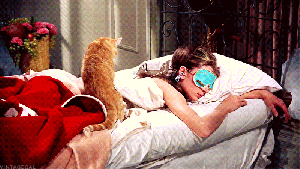
Let’s not even discuss work hangovers.
Even though they’re kind of inevitable. Like on a Tuesday after spending a whole night singing Elbow in a pub with four people that used to be strangers.
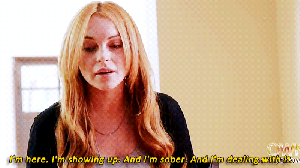
Which is why there will be days when you’ll not-so-secretly feel pretty smug, all cosied up at 10pm.
Sleep and ‘off time’ is so much more precious than it ever used to be. So whether it’s a good book and a glass of wine, Netflix and tea, or just an early bedtime, don’t worry about appreciating those evenings.
There will be days you are totally unprepared for.
You will never be prepared for everything, especially not the big changes and decisions you have to make. You might become stuck for a while, then have an awesome opportunity drop in your lap. Don’t freak out and panic just because it’s sudden. You might have hell descend. Punch it right back, no one escaped by cowering in the corner.
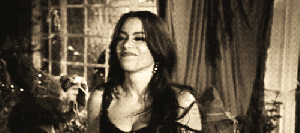
Days when the real world sucks a lot more than you expected
Once upon a time, you looked forward to being a real adult where you go to a fabulous job from 9-5 and attend events every week where you meet Interesting And Charismatic People who invite you back to their penthouse parties. NO. The real world is a cold, harsh place. And you are just thrown into it blind and completely unprepared.
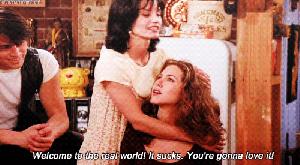
Days when you really don't like yourself that much.
These days are the worst. You might doubt yourself. Be angry at yourself. Be sad that you've gained a few pounds or upset that your new grown-up hair cut makes you look like the bad guy from that independent film set in Mexico. Fact is, bad days don't stop because you're not a teenager anymore. However, being in your twenties is amazing, so shake it off and remember the longest relationship you're ever going to have is with yourself. So make it a good one.
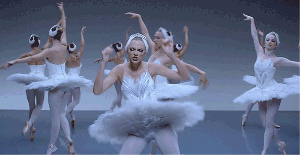

Just remember: you are not stuck.
Change is fine. Change is good. Change is what brought you to where you are in the first place. It’s also ok to change your mind. It might not seem possible at the time. It might be hard. But there will be situations that you really find yourself stuck in – so if you have the choice and you’re unhappy and you can change your stars… do it. Some of the best people I know have already done this (in one case repeatedly) and it’s only been for the better.
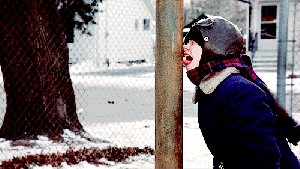
You're just a twenty-something.
So you don’t have a jaw-dropping job, a wicked salary, your own flat, a relationship, and tons of cash saved. Your life is so far off track it’s basically the Starlight Express. But don’t stress. Just because you had this grand scheme and thought all the keys were ready to slot into place, it’s ok if they don’t all at once. Be patient and trust that things are going to work out as they should. Be weird. Be as far off track as you like. Be a twenty-something.
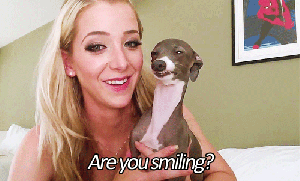
Je serai poète et toi poésie,
SCRIBBLER

